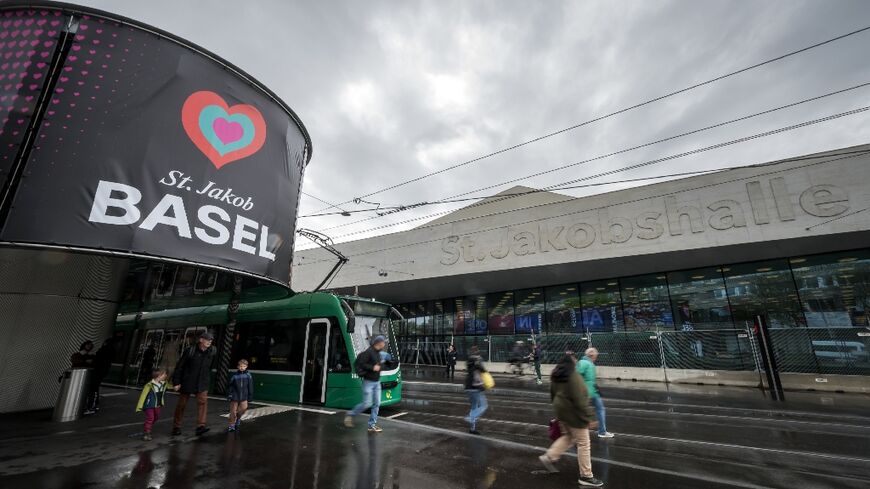Palestinian symbol protest clouds Eurovision contest

Eurovision song contest organisers apologised after a Swedish singer breached a ban on political symbols by wearing a pro-Palestinian scarf as he performed.
Eric Saade, one of the opening acts for the semi-final contest on Tuesday night, proved the most controversial act of the evening, which saw Ukraine and Croatia advance to the finals.
This year's competition has faced calls for Israel to be excluded over the war in Gaza, which the organisers refused. Thousands of people are expected to attend pro-Palestinian rallies throughout the week in Malmo.
Saade, whose father is of Palestinian origin, wore a keffiyeh scarf -- a Palestinian and Arab symbol -- on his arm. He had warned before the show that he wanted to make some kind of protest against Israel being allowed to take part.
Swedish broadcaster SVT and the main organisers, the European Broadcasting Union, condemned his gesture.
"It is regrettable that he used his participation in this way," SVT's executive producer for the contest, Ebba Adielsson, told AFP.
Other acts in the contest have made calls for a ceasefire or comments against Israel but were told not to show political messages during their performances.
Because of security fears, Israel's competitor Eden Golan has reportedly been told to stay in her hotel room in Malmo before competing in the second semi-final on Thursday.
Demonstrations calling for Israel to be excluded are expected to be held in the Swedish city around the performance.
Among the qualifiers were Ukrainians Alyona Alyona and Jerry Heil with their rap song "Teresa and Maria". Croatia's Baby Lasagna, singing "Rim Tim Tagi Dim", one of the early favourites, also made Saturday's final.
Serbia, Portugal, Slovenia, Lithuania, Finland, Cyprus, Ireland and Luxembourg were all voted places in the final.
Sweden as the reigning winners, Britain, France, Germany, Italy and Spain -- the main contributors to the EBU -- all get automatic places in Saturday's final.





